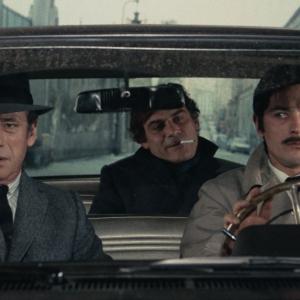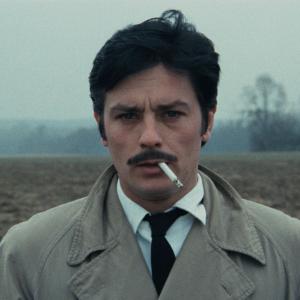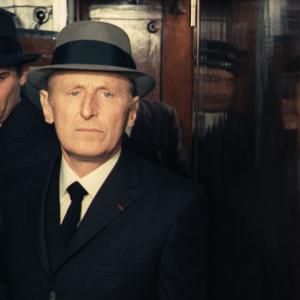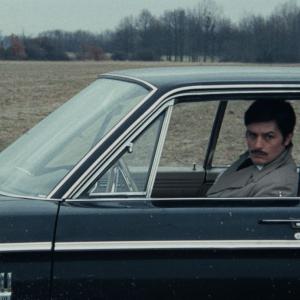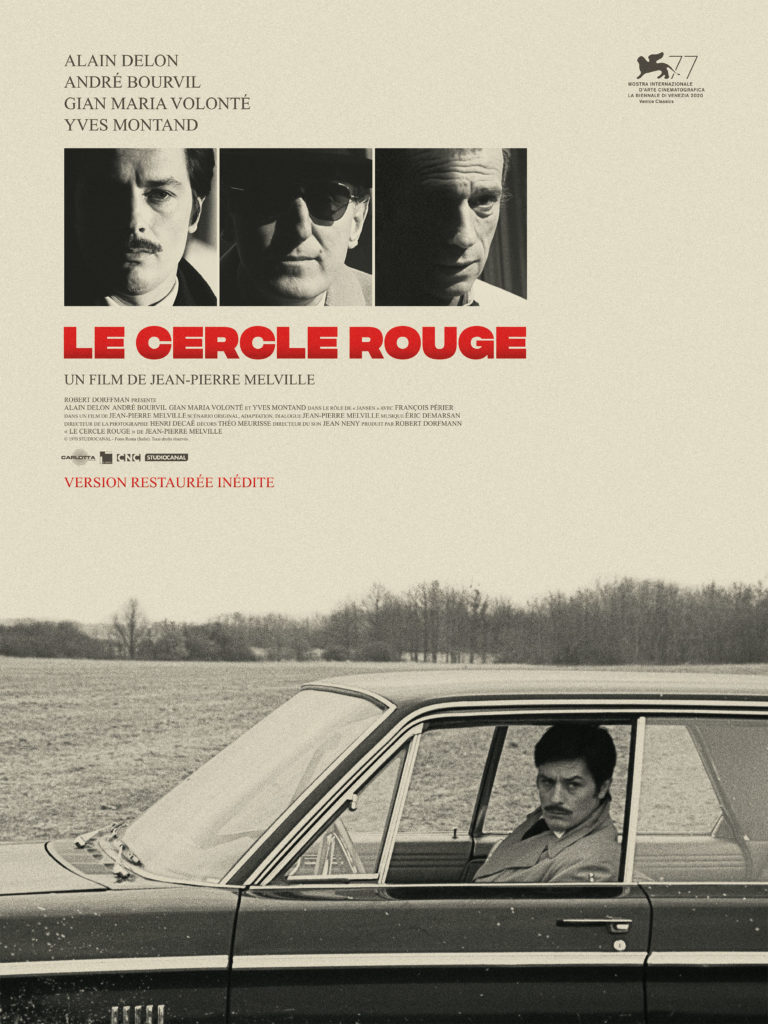
THE RED CIRCLE
Barely released from prison, a mobster pulls off a fabulous heist with the help of an escaped gangster and an alcoholic ex-cop. The heist succeeds. The fence, frightened by the size of the haul, advises them to go to a specialist. The specialist is none other than the police commissioner in charge of the investigation.
Thriller-Suspense - France/Italy - 1970 - 140 min - Colour - 1.85:1
THE RED CIRCLE
1970 | France / Italy | 140 mn | Colour | 1.66:1 | VISA : 36 714 | French Version
a film by Jean-Pierre MELVILLE
with Alain DELON, André BOURVIL, Gian Maria VOLONTÉ, Yves MONTAND,François PÉRIER
original screenplay, adaptation, dialogue Jean-Pierre MELVILLE
music Éric DEMARSAN
director of photography Henri DECAË
sets Théo MEURISSE
sound director Jean NENY
produced by Robert DORFMANN
a film directed by Jean-Pierre MELVILLE
Trailer:
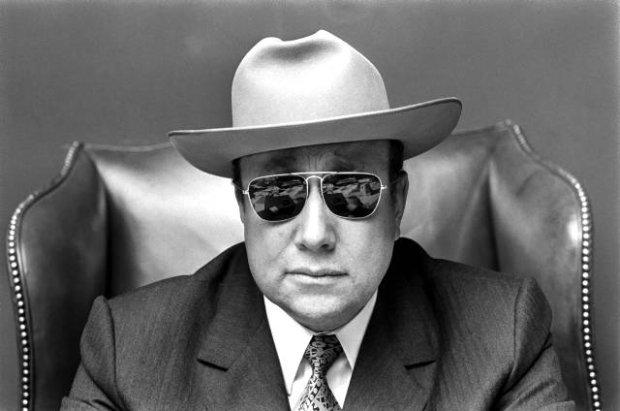
Jean-Pierre Melville
Born into an Alsatian Jewish family, Jean-Pierre Grumbach decided at the age of 15 to become a filmmaker after watching Frank Lloyd's film Cavalcade. During World War II, in 1942, he joined the Free French forces in London and adopted the pseudonym "Melville" in homage to the author of Moby Dick. After being denied the position of assistant director, he embarked on filmmaking in 1946 with the short film 24 Hours in the Life of a Clown. The following year, in challenging conditions, he directed his first feature film, Le Silence de la mer, based on Vercors’ novel, which had been published clandestinely during the war.
In 1950, Jean Cocteau entrusted him with adapting his novel Les Enfants terribles for the big screen. Five years later, Melville established his own film studio, the Jenner Studios, in the 13th arrondissement of Paris, where he shot the interiors of his films for nearly a decade. Fascinated by American cinema, particularly the works of Howard Hawks and John Huston, Melville directed a series of film noirs during the 1950s and 1960s, such as Bob le Flambeur, Two Men in Manhattan, and Le Doulos. These films greatly influenced the young filmmakers of the French New Wave, who regarded him as a spiritual father.
Thanks to his collaborations with Jean-Paul Belmondo (Léon Morin, Priest, Le Doulos, Magnet of Doom), Melville enjoyed commercial success, allowing him to return to his favorite genre, film noir. In 1966, he directed Le Deuxième Souffle with Lino Ventura, followed by Le Samouraï (1967), in which Alain Delon delivered a masterful performance as Jef Costello, a solitary professional hitman.
In 1969, Melville directed Lino Ventura, Simone Signoret, Paul Meurisse, and Jean-Pierre Cassel in Army of Shadows, a film about the activities and incredibly difficult lives of a Resistance network under German occupation. In 1970, he brought together an all-star cast (Alain Delon, Yves Montand, and Bourvil) in Le Cercle Rouge, one of the best film noirs of the 1970s. Two years later, he reunited with Alain Delon for his final film, Un flic, a crime thriller that did not find its audience upon release.
Jean-Pierre Melville passed away on August 2, 1973, in Paris. His work, dominated by themes of solitude, failure, and death, has influenced several generations of filmmakers, including Martin Scorsese, John Woo, Michael Mann, Johnny To, and Quentin Tarantino.
Filmography:
24 Hours in the Life of a Clown (1946)
Le Silence de la mer (1949)
Les Enfants terribles (1950)
When You Read This Letter (1953)
Bob le Flambeur (1956)
Two Men in Manhattan (1959)
Léon Morin, Priest (1961)
Le Doulos (1962)
Magnet of Doom (1963)
Le Deuxième Souffle (1966)
Le Samouraï (1967)
Army of Shadows (1969)
Le Cercle Rouge (1970)
Un flic (1972)




